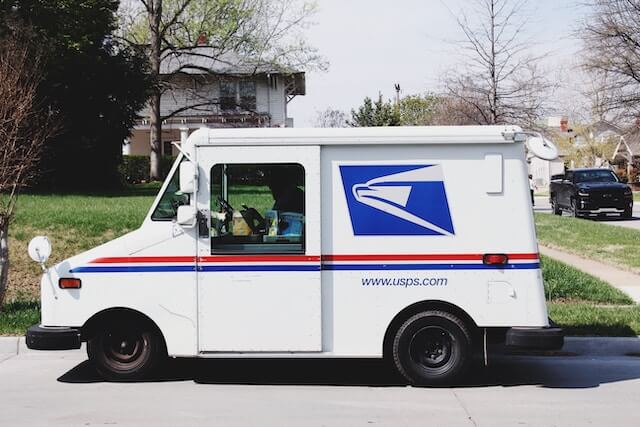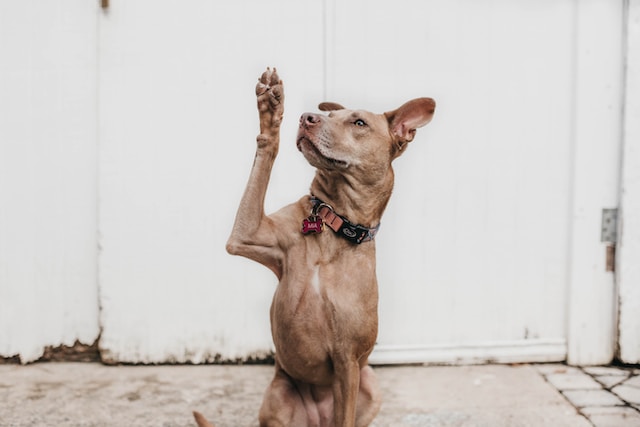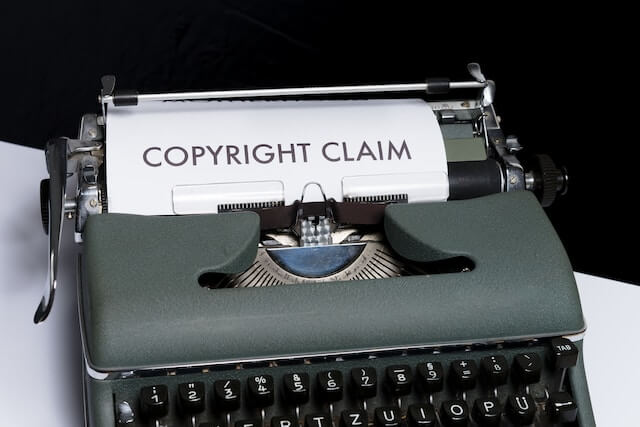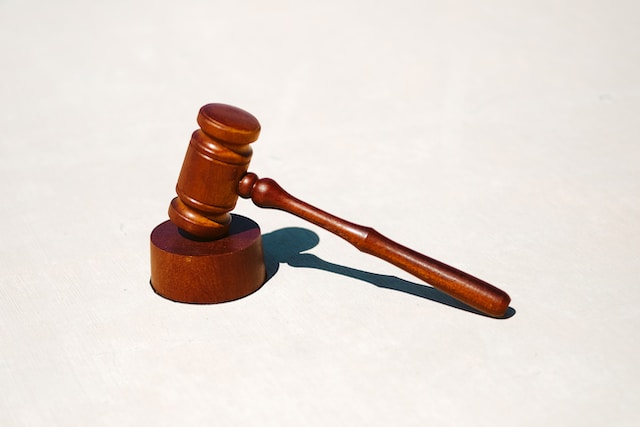- Why Copyright an Unpublished Work / Song?
- How to Copyright an Unpublished Work / Song
- Questions Regarding Registering an Unpublished Song, if I Didn't Make the Underlying Beat (Form PA? Form SR? Etc.)
- 1. Should I register both the SR (recording) and PA (lyrics and melody) together? Or just the PA (lyrics and melody)? Since I don't own the rights to the underlying beat (instrumental?)
- 2. Can I register one song as Unpublished? Or can you only register a group of Unpublished Works (GRUW)?
- 3. Do I just upload the file of my song (mp3 or wav)? Or should I also upload the lyrics, separately as a PDF or DOCX file?
- 4. Is there a specific way I should name my files?
- Conclusion
- References
Why Copyright an Unpublished Work / Song?

Photo: Joel Moysuh @ Unsplash
Header Photo: Tingey Injury Law Firm @ Unsplash
Why copyright a song (with the U.S. Copyright Office) before you release it to the public (publish it)?
Because sometimes you might want to sell the song to another artist, or show it to producers.
You still want to protect your work, yet at the same time aren’t ready to release the song as a Published Work.
By registering your song as an Unpublished Work, you are granted the following rights, under U.S. Law:
- The Right to Litigate, if someone infringes on your song (uses it without your permission, copies it, etc.)
- The Right to First Recording, which you can charge a premium for, if an artist likes your song and wants to perform it first.
Songwriters often compose songs that might not fit their own brand, or they might not want to perform themselves. Some songwriters never perform their own songs, and prefer to write for other artists. They just like to focus on the creation aspect, and perhaps don’t want to deal with the fame, or all the work associated with getting your name and music out there. They’ll write songs for other artists in the hopes that they’ll get picked up, and possibly turn into a #1 hit, leaving them with a nice stream of royalty checks.
Or, for example if a Country singer likes making Hip-Hop songs, and is good at it, but doesn’t necessarily want to perform them him or herself. Those Hip-Hop songs don’t have to just sit around on a hard-drive somewhere, aging into obscurity – that artist can sell them and make money off of up-front payments and royalties, if another artist wants to perform them.
If the artist wants to protect their work while showing them around to different artists or producers, or just wants to protect their song (for any reason), before it’s released to the world, they should register them with the U.S. Copyright Office, as an Unpublished Work.
How to Copyright an Unpublished Work / Song
- To copyright an Unpublished Song with the U.S. Copyright Office, you will use the Standard Application
- Log-in to the U.S. Copyright Office’s eCO Electronic Copyright Office Portal
- Click “Standard Application” on the left hand side, under “Register a Work”. Click “Start Registration”
- Select “Sound Recording” if you’ll be copyrighting both the actual song recording (final mp3/wav that’s engineered, mixed and mastered – i.e. “SR”), and the Publishing (the lyrics and the melody, i.e. “PA”). If you only want to copyright the lyrics and melody, select “Word of the Performing Arts” (i.e. “PA”)
- On “Title” screen, click “New”. Select “Title of work being registered” from the dropdown, and enter your Song Title. Click “Continue”
- For “Has this work been published?”, select “No”. Enter Year of Completion. Click “Continue”
- Enter Author names. Click “Add Me” to enter your own info. For any other authors, if there are any, click “New”
- For each author, describe the authors contribution. If just the Sound Recording, check “Sound Recording”. If more, like lyrics and melody, check “Sound Recording” and fill out the “Other” field, with a description. (For me and my co-author, on a song where we used a pre-existing instrumental, I put “Lyrics, vocal melody, vocal performance, and vocal effects”. For “Is this a Work for Hire”, select “No”, unless otherwise applicable. Click “Save” and “Continue”
- For the “Claimants” section, click “Add Me” and enter your information, or “New”, if someone else is a Claimant.
Note: Whatever information (address, phone number, etc.) you add here will be viewable to the public. So consider a P.O. Box / 2nd phone number / etc. (I personally recommend Anytime Mailbox over a P.O. Box, since they give you an actual physical address that looks like a street address. Some services / companies don’t allow you to sign up with a P.O. Box address. Also, it’s cheaper than a P.O. Box, and they scan your letters so you don’t have to drive to the post office whenever you get mail, along with other benefits).
For a 2nd phone number, I use Google Voice, since it’s free.
Click “Continue” - For “Limitation of Claim”, if you wish to exclude anything from the copyright claim (such as an instrumental / beat you used, which isn’t yours, enter that info in the “Other” field. For me, I used an instrumental that isn’t mine, so I checked “Sound Recording” and in “Other” I put “Instrumental (beat) is excluded from this copyright claim.” Enter New Material Included. For me I wrote “Lyrics, vocal melody, vocal performance, and vocal effects.” Click “Continue”
- Continue filling out all necessary information, which are contact addresses and such. When you are finished, review your submission, and confirm everything is correct. Then click “Add to Cart”
- Click “Checkout” to pay. (Note: You’ll upload the song at the very end of the process. You have to pay first.) Pay with credit card or bank transfer. Click “Continue” once paid
- Upload your song. You only need to upload the mp3, even if your song has lyrics. You don’t need to upload a separate PDF file for the lyrics
Questions Regarding Registering an Unpublished Song, if I Didn’t Make the Underlying Beat (Form PA? Form SR? Etc.)

Photo: Camylla Battani on Unsplash
Question: I have a song I co-wrote the lyrics and melody to with my friend, though the underlying beat (instrumental) we used is from a producer we haven’t yet spoken with about clearing the instrumental.
We want to register it as an Unpublished Work before showing it to the producer, and possibly working with him on shopping the song to other artists.
1. Should I register both the SR (recording) and PA (lyrics and melody) together? Or just the PA (lyrics and melody)? Since I don’t own the rights to the underlying beat (instrumental?)
Answer (U.S. Copyright Office):
1. The SR is for the mixing, mastering, and engineering… so it just depends on you if you want to register that.
If you don’t own the instrumental (beat), just state that you’re excluding the instrumental on the registration, under “Limitation of Claims”.
So it’s really up to you if you want to register only the PA (Work of Performing Arts, i.e. lyrics and melody), or both the SR and PA. Just make sure to state what you’re excluding under the Limitation of Claims.
2. Can I register one song as Unpublished? Or can you only register a group of Unpublished Works (GRUW)?
Answer (U.S. Copyright Office):
2. Yes, you can register one Unpublished song you wrote with a co-author, for that use the standard application. Choose SR to register both the SR and PA together… there’s a box labeled “Other” where you type in “Melody and Lyrics”.
3. Do I just upload the file of my song (mp3 or wav)? Or should I also upload the lyrics, separately as a PDF or DOCX file?
Answer (U.S. Copyright Office):
3. You can just upload the mp3 with the lyrics already on it. You don’t have to upload a separate PDF with lyrics on it.
4. Is there a specific way I should name my files?
Answer (U.S. Copyright Office):
4. File name should coordinate with the title on the application. Doesn’t have to be exact. Just basically the same title as on the registration, so the workers at the U.S. Copyright Office know it’s the same song.
When registering group works, it matters, and it’s written out in the instructions for the GRUW.
Conclusion

Photo: Markus Winkler on Unsplash
It would be a shame if you showed a song around to various artists and producers, and someone decided to cut it and publish it without your permission (or paying you, or even crediting you).
If you’re a small artist starting out, and the person who stole it is a big player in the industry who will blackball you if you decide to speak out against them, with a big budget for lawyers… you might have the fight of your life in front of you, if you didn’t register your song copyright.
I’ve heard of this happening… a bedroom producer showed sent a beat to a key music industry person in his city, and a few months later he heard his beat on a prominent mixtape. He wasn’t credited, and decided not to pursue action against this industry player, for fear of being blacklisted in his local music scene. He just decided to take it as a loss and move on.
To pursue legal action, you need a registered U.S. Copyright for your song, either as an Unpublished Work (before it’s released), or as a Published Work (if publishing it, e.g. uploading it on Spotify, Bandcamp, selling CD’s, etc.).
If you don’t have the money to register with the U.S. Copyright Office, you can register with a 3rd Party Service, such as Songuard, for $3.95 per song. This at least will establish: 1. Authorship and 2. Date of Creation, which you can then use as proof you are the original author, to then register it with the U.S. Copyright Office, if anyone else is claiming they wrote it first. And once you have that registered copyright… THEN you can litigate and seek damages for your song.
You can also register your songs with 3rd Party Services, such as Songuard, which will provide certified song files showing that you created the song first (Authorship and Date of Creation). Usually showing such a certified 3rd Party Document is enough to get the infringing party to back off, and you both can settle outside of court, and reach a win-win situation.
The other side most likely also doesn’t want to get into a costly, lengthy legal battle. Remember though, if the song really takes off, and is making the other side a lot of money, they might want to fight for it and take it to court. Which in that case… you’ll need a registered U.S. Copyright sooner or later… and it’s much cheaper to just get one up front.
Also remember… sending yourself a copy via physical mail (e.g. Poor-Man’s Copyright via USPS), or showing timestamps on a DAW project file, has never been admissible in a court of law. It just doesn’t hold up as evidence, and never has, as both methods can be tampered with. These two methods are myths, and provide you with no legal protection.
References
- https://www.copyright.gov/registration/
- U.S. Copyright Office Phone Support (1-877-476-0778) – 8:30am – 5pm EST. Press 1, 1, 0
- U.S. Copyright Office – FAQ
- U.S. Copyright Office Video Tutorial: Standard Application
- U.S. Copyright Office – Circular 56A – Information about registering a musical composition together with a sound recording

